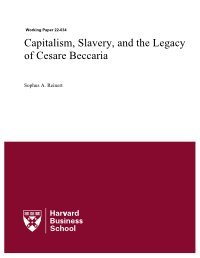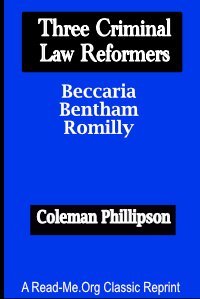This collection of Cesare Beccaria's writings, conducted with critical rigor and, as far as possible, complete, was promoted by Mediobanca to honor the memory of Adolfo Tino (1900-1977), its president for twenty years, who abandoned the profession of journalist so as not to serve despotism, was a great lawyer, one of the founders of the Action Party, animator of the Resistance, inflexible supporter of the ideals of justice and freedom.
The Edizione Nazionale Beccariana is not only a complete collection of texts, but it is also a critical edition, with philological notes, appendices for manuscripts and outdated drafts, commentary notes, critical essays aimed at giving an account of previous editions and the criteria followed, and traces a history of each of Beccaria's writings, from the first draft to the last printing supervised by the author. The corpus will ultimately be composed of 16 volumes, to which will be added a final one of addenda, documents, indexes. This collection, now published in its entirety,documents the intense activity of management of public affairs that took place within the magistrates of the State of Milan at the end of the 18th century, as well as Beccaria's fundamental contribution to that new cultural and political climate in which public administration and economic reflection were becoming increasingly important.
READ ONLINE
VOLUME I. Dei delitti e delle pene Scritti filosofici e letterari.(20.7 MB)
VOLUME II. Scritti filosofici e letterari (14.7 MB)
VOLUME III. Scritti economici (21.4 MB)
VOLUME IV. Carteggio (17.8 MB)
VOLUME V. Carteggio (20 MB)
VOLUME VI. Atti di governo (Serie I: 1771 - 1777) (13.4 MB)
VOLUME VII. Atti di governo (Serie II: 1778 - 1783) (16.5 MB)
VOLUME VIII. Atti di governo (Serie III: 1784 - 1786) (16.5 MB)
VOLUME IX. Atti di governo (Serie IV: 1787) (14.1 MB)
VOLUME X. Atti di governo (Serie V: 1788) (10.9 MB)
VOLUME XI. Atti di governo (Serie VI: 1789) (15.1 MB)
VOLUME XII. Atti di governo (Serie VII: 1790) (3.5 MB)
VOLUME XIII. Atti di governo (Serie VIII: 1791) (2.3 MB)
VOLUME XIV. Atti di governo (Serie IX: 1792) (2.7 MB)
VOLUME XV. Atti di governo (Serie X: 1793) (4.9 B)
VOLUME XVI. Atti di governo (Serie XI: Gennaio - Dicembre 1794) (1.9 MB)
VOLUME XVI bis. Atti di governo (Serie XI: Gennaio - Dicembre 1794) - (2.2 MB)




